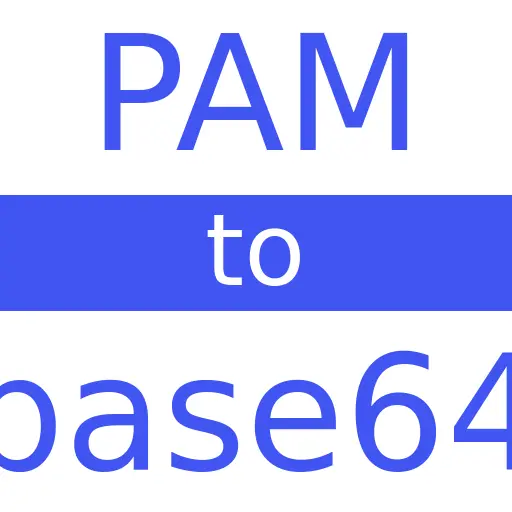PAM to BASE64
Convert PAM to BASE64 (Fast & Free)
PAM to BASE64 Converter Tool - Your Day to Day Companion for High Quality Conversions
Hi there, and welcome to ProConvert! On this page you can easily change PAM to BASE64 with the help of our free, fast and secured online converter. PAM to BASE64 Converter Tool can be used with no limits or hidden charges. Don't forget, you can use the forum section below if you have any question for us or, leave us a rating in the ratings section so others can see what performant tools we have in place for free.
(or click to select files)
F.A.Q. / Frequently Asked Questions about PAM to BASE64
Curious about how our platform works? ProConvert team got all your questions together and created the following Frequently Asked Questions section. Here you can find useful information about us. Don't see your question here ? Leave a question or a comment in the forum section and our team will help you as soon as possible.
File conversions were never that easy before. But good for you! ProConvert is here and gives you support and full access to convert or change PAM to BASE64 any time, with no limits or charges. Everything is free, created for your needs.
- Select PAM files you want to convert, from your computer or drag and drop it on the page.
- Press the "Convert" button in order to convert PAM to BASE64.
- When the conversion is completed, click "Download" on the desired converted BASE64 file.
Useful information about PAM
| Extension: | PAM |
|---|---|
| Name: | Portable Arbitrary Map |
| Mime Type: | image/x-portable-arbitrarymap |
| Converter: | PAM Converter |
| Description: | A PAM image describes a two dimensional grid of tuples. The tuples are arranged in rows and columns. The width of the image is the number of columns. The height of the image is the number of rows. All rows are the same width and all columns are the same height. The tuples may have any degree, but all tuples have the same degree. The degree of the tuples is called the depth of the image. Each member of a tuple is called a sample. A sample is an unsigned integer which represents a locus along a scale which starts at zero and ends at a certain maximum value called the maxval. The maxval is the same for every sample in the image. The two dimensional array of all the Nth samples of each tuple is called the Nth plane or Nth channel of the image. - Source |

Useful information about BASE64
| Extension: | BASE64 |
|---|---|
| Name: | Base64 Encoding |
| Mime Type: | |
| Converter: | BASE64 Converter |
| Description: | In computer programming, Base64 is a group of binary-to-text encoding schemes that transforms binary data into a sequence of printable characters, limited to a set of 64 unique characters. More specifically, the source binary data is taken 6 bits at a time, then this group of 6 bits is mapped to one of 64 unique characters. As with all binary-to-text encoding schemes, Base64 is designed to carry data stored in binary formats across channels that only reliably support text content. Base64 is particularly prevalent on the World Wide Web where one of its uses is the ability to embed image files or other binary assets inside textual assets such as HTML and CSS files. - Source |
In High Demand Converters / See What Others Convert
As you might know already, we have over 2600 converter tools like PAM to BASE64 on our platform. All of them are free to use and provides high quality computing for your needs. However, these are the most used converters on ProConvert at the moment.
Forum / Questions and Answers / Everything about PAM to BASE64
You got it right! Here you can ask anything about PAM to BASE64 Converter Tool or any other information regarding our services. You can of course recommend us what to create further or improve as a feedback. We are eager to answer all your questions.
* The question will appear on this page once answered by one of ProConvert Team members.
There are no comments posted at the moment.


